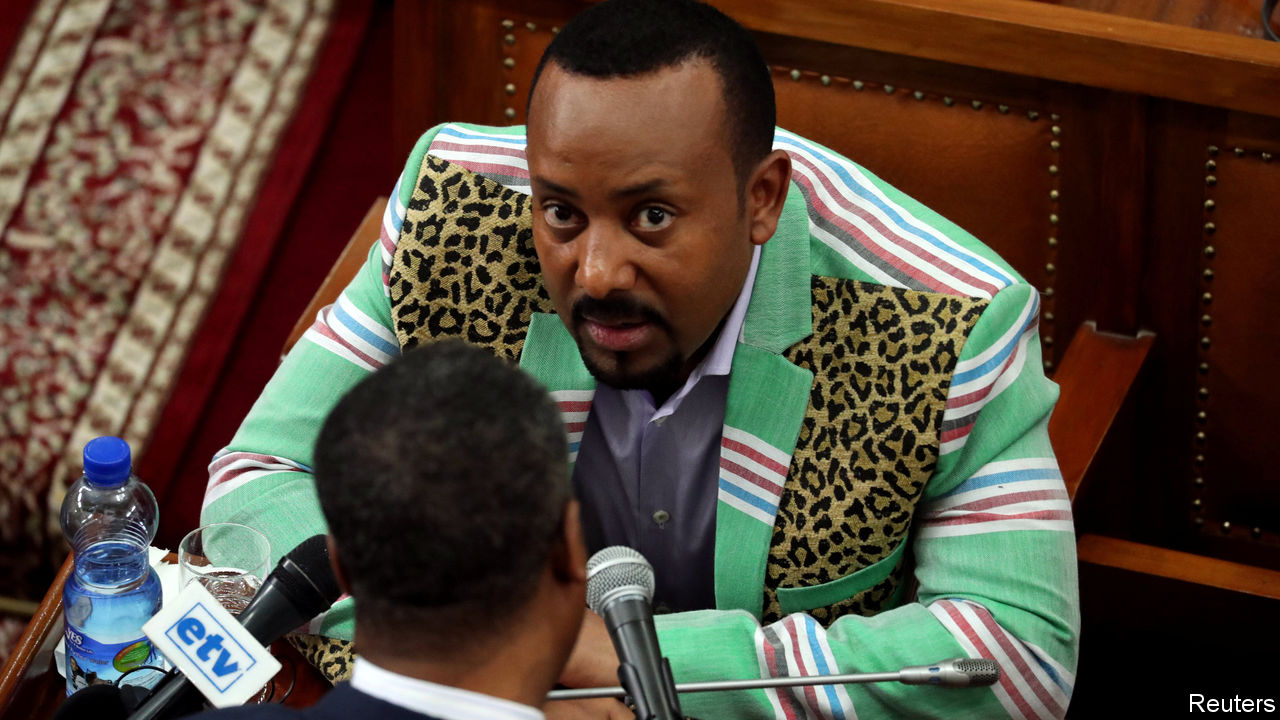The background to the arrests was communal violence, which raged in Addis Ababa for several days in September. According to the police, at least 28 people were killed in riots in the old city centre around September 14th. Many were Oromo, Ethiopia’s largest ethnic group. Shortly after that, Oromo activists held a rally to welcome the return of the Oromo Liberation Front (OLF), a previously banned rebel group that had fought for self-determination. After the event young men, some wearing OLF colours, attacked people in the city belonging to other ethnic groups, killing at least 58.
The pattern of mass arrests followed by “re-education” has a long history in Ethiopia. Thousands were packed off to camps after demonstrations against disputed election results in 2005. Tens of thousands were detained during a state of emergency imposed in 2016 to curtail protests against the ruling party. They were lectured by military officers on subjects including the “Ethiopian Renaissance”, the perils of neoliberalism and the supposed threat of Western-sponsored “colour revolutions”.
With the appointment in April of Abiy Ahmed, the country’s reformist prime minister, such repressive tactics had seemed a thing of the past. Abiy has freed thousands of political prisoners and begun rewriting some of the country’s most draconian statutes. He often preaches the importance of the rule of law.
The arrests in September were the antithesis of this. Bereket and his peers were detained without a court order or even an explanation. Many seem to have been picked up at random. “I feel like a second-class citizen,” says Kassahun, a 37-year-old homeless man on whom the irony of being taught the constitution while being detained unconstitutionally was not lost. “I consider it propaganda,” he says.
The incident reveals subtle changes in the once brutal Ethiopian state. Many detainees were surprised not to be beaten. “No one touched us,” says Yazid, a 27-year-old. He and others even spoke positively of their civics lessons. “I learnt human rights are inviolable,” he says. On October 18th the prime minister admitted publicly that most of the arrests had been a mistake.
Although he has tried to distance himself, it is implausible that Abiy did not approve the police’s actions. It is likely that he felt under pressure from his party to show he could act firmly against unrest. Despite the talk of a new era in Ethiopian politics, the same party remains in power. The ruling party is “trying to bring something new,” says a former journalist. “But their old self is still intact.”
This article appeared in the
Middle East and Africa section of the print edition under the headline
"Abiy’s law"






